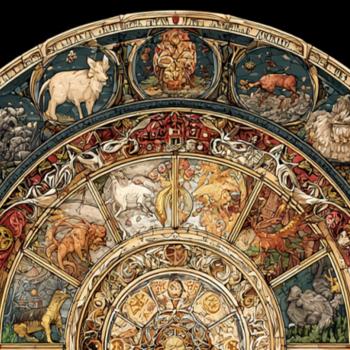
It’s quite common for Christians to bemoan the fact that the “World” – meaning non-Christians – reject the Gospel message of Jesus. What they mean to suggest is that they are the ones who embrace the message of Jesus while everyone else foolishly and ignorantly rejects his message.
And while they Church is correct about the fact that the World system – the corporate empire and governmental authorities – do indeed reject the message of Jesus, the idea that the Church embraces his message is false. They reject it just as strongly and emphatically – perhaps more so – than those in power do.
But to explain why this is so I’ll need to define what I mean when I talk about the “message of Jesus” because the Church seems to think that his message – the Gospel – was all about dying on the cross so that God could forgive your sins and give you a ticket to heaven. That’s not even close to what Jesus actually talked about.
The Gospel – or, literally, the “Good News” – that Jesus proclaimed had nothing to do with his sacrificial death at the hands of Roman or Religious authorities. What Jesus talked about in the Gospels – Matthew, Mark and Luke, especially – was the “Good News of the Kingdom” which was all about recognizing the reality of our connection with God outside of religious temples, priests, or animal sacrifices. Jesus spoke almost exclusively about the Kingdom of God and he said it wasn’t over here, or over there, but that the Kingdom of God was a spiritual reality that was “inside you.” This radical notion of the Kingdom of God being located internally rather than externally was a huge paradigm shift for everyone – both the Jewish Religious authorities and the secular Roman authorities.
Here’s why. Because both organized Religion and political Empires require one key ingredient to thrive: Division.
For the Religious systems, division is necessary as a tactic to strengthen your identity within the belief system. This is why, in Jesus’ day, the Jewish people were strongly divided against the Romans, and against the Samaritans, and even other Jewish believers who were either Pharisees or Sadducees. Divisions between other religious groups, or non-religious people, creates a strong sense of Tribalism that galvanizes people together against everyone who thinks or believes differently.
For the non-religious or secular political systems, division is useful for building a sense of nationalism, and patriotism against other nations, and it encourages people to willingly fight in the wars you start to increase your power, influence and wealth. Without a strong sense of division – an Us/Them mentality – wars cannot be waged, and political parties cannot define themselves as necessary guardians of liberty and justice.
So, when Jesus shows up and suggests that God’s Kingdom is within everyone, that challenges the Religious and the Political power structures of his day. Perhaps that’s one of the reasons why both of these systems saw Jesus and his message as a strong threat that had to be eliminated in as brutal and public a manner as possible; to discourage anyone else who might think these ideas of connection and Oneness were worth pursuing.
The ideas Jesus introduced in the first three Synoptic Gospels about the Kingdom of God being within us eventually led to the even more startling statements found in the Gospel of John where Jesus says:
“In that day you will know that I am in my Father, and you in me, and I in you.” [John 14:20]
This radical idea that Jesus realizes that he is in God and that we are in him and he is in us is probably one of the most anti-division statements found in the entire New Testament.
It’s an idea that, if it were to spread to everyone, might lead to the end of Religion as we know it, and the downfall of Empires everywhere.
Because if everyone is already in God’s Kingdom, we don’t need religious systems to experience it.
Because if everyone is as connected to one another as we are to God, then how could we ever go to war and kill someone who is essentially connected to ourselves and to the Divine?
The concept of Division is one that Jesus strongly denied. It’s why he told us to love our enemies. It’s why he emphasized the importance of forgiveness. It’s why he taught us to pray a prayer of community where we cared about everyone and not just ourselves.
But this idea of Oneness and exposing the illusion of Separation is a huge threat to Religious systems and to political Empires.
That’s why they both strongly rejected the message of Jesus two thousand years ago, and it’s why they still reject that same message today.
**

Sola Deus: What If God Is All Of Us? by Keith Giles is now available on Amazon in Paperback and on Kindle.
Keith Giles is the best-selling author of the Jesus Un series. He has appeared on CNN, USA Today, BuzzFeed, and John Fugelsang’s “Tell Me Everything.” He hosts the Second Cup with Keith podcast, and co-hosts the Apostates Anonymous podcast, and the Heretic Happy Hour Podcast. Find out more about his online courses HERE>













